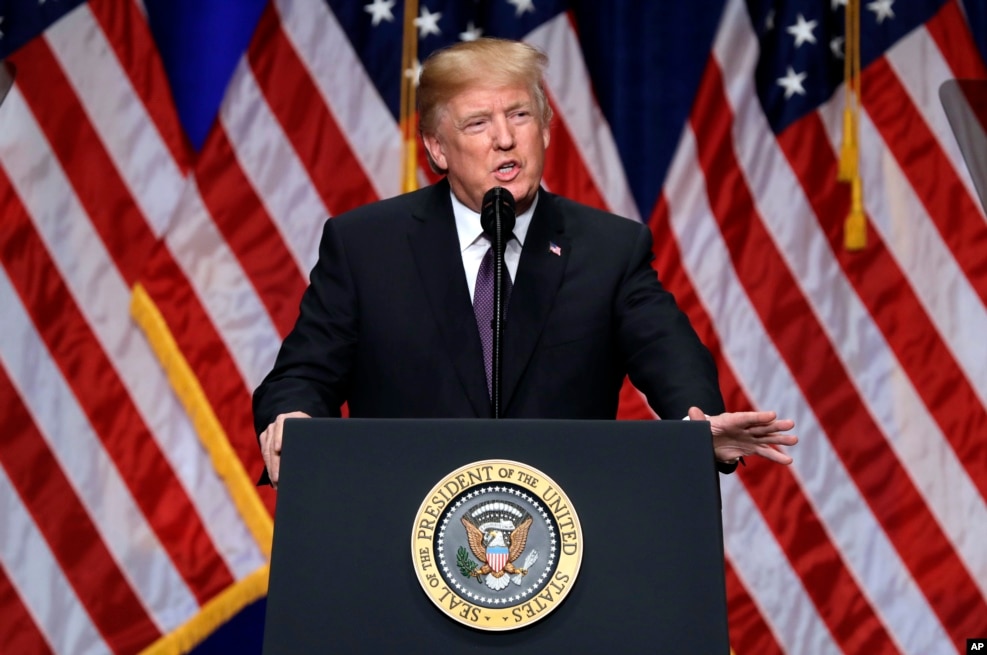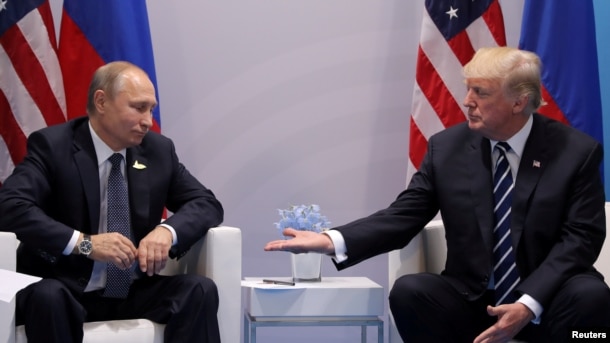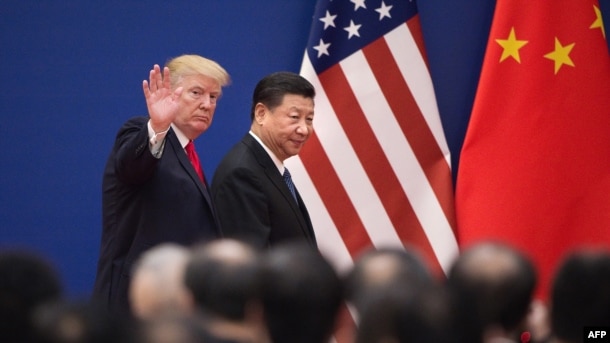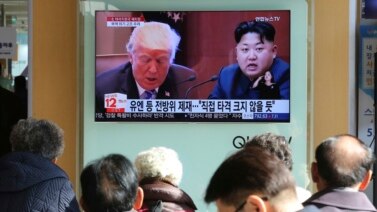
U.S. President Donald Trump has launched a new national security plan that calls for continuing his “America First” policies.
Trump outlined his first major national security strategy during a speech Monday in Washington.
A full, written report of the new U.S. strategy identifies China and Russia as “revisionist powers” that represent economic and political threats to America. Both Russia and China “use technology, propaganda, and coercion” to shape a world that goes against U.S. interests and values, the strategy states.
China and Russia “are determined to make economies less free and less fair, to grow their militaries, and to control information and data to repress their societies and expand their influence,” the document added.
During his speech, Trump said his national security plan focuses on four main areas. These include protecting the U.S. homeland and borders, seeking fair and balanced trade, rebuilding the military and advancing American influence throughout the world.
Trump said it was in keeping with “America First” policies, which he has been promoting since his presidential campaign.
While not specifically naming China and Russia, Trump said his strategy sets important steps to deal with “new forms of conflict, such as economic and political aggression.” He said the plan calls for strengthening regional alliances to counter these threats. “America will lead again,” Trump said.
The full strategy document accuses Russia of “using subversive measures to weaken the credibility of America’s commitment to Europe, undermine transatlantic unity, and weaken European institutions and governments.” As examples, it cites Russia’s invasions of Georgia and Ukraine.

“Through modernized forms of subversive tactics, Russia interferes in the domestic political affairs of countries around the world,” the strategy documents warns.
During his speech, Trump did praise recent cooperation between the U.S. and Russia that led to U.S.-provided intelligence that Moscow says helped prevent a possible bomb attack in St. Petersburg, Russia.
While the new strategy states that the U.S. seeks to continue cooperating with China, it is also critical of its Asian rival. “China is using economic inducements and penalties, influence operations, and implied military threats to persuade other states to heed its political and security agenda,” it says.
The document also says China’s efforts “to build and militarize” in the South China Sea “endanger the free flow of trade, threaten the sovereignty of other nations,” and harm regional stability.

The strategy also warns of growing threats from “rogue regimes,” such as North Korea.
The last U.S. strategy plan, prepared by President Barack Obama in 2015, declared climate change an “urgent and growing threat” to national security. The Trump plan removes that language, following the administration’s intention to pull out of the Paris climate accord.
The Trump administration strategy sets a goal of becoming an “energy-dominant nation,” with the U.S. recognizing “the importance of environmental stewardship.”
I’m Bryan Lynn.
Bryan Lynn wrote this story for VOA Learning English, based on reports from the Associated Press, Reuters and the National Security Strategy document. Hai Do was the editor.
We want to hear from you. Write to us in the Comments section, and visit our Facebook page.
Words in This Story
revisionist - adj. asking questions about and trying to change existing beliefs about how events happened
coercion - n. using force or threats to make someone do something
repress - v. to control (someone or something) by force
subversive - adj. secretly trying to ruin or destroy a government, political system
inducement - n. something giving a reason for doing something
persuade - v. convince, urge someone to act
heed - v. pay attention to a warning or advice
sovereignty - n. a country’s independent authority and the right to govern itself
stewardship - n. the management or care of something


